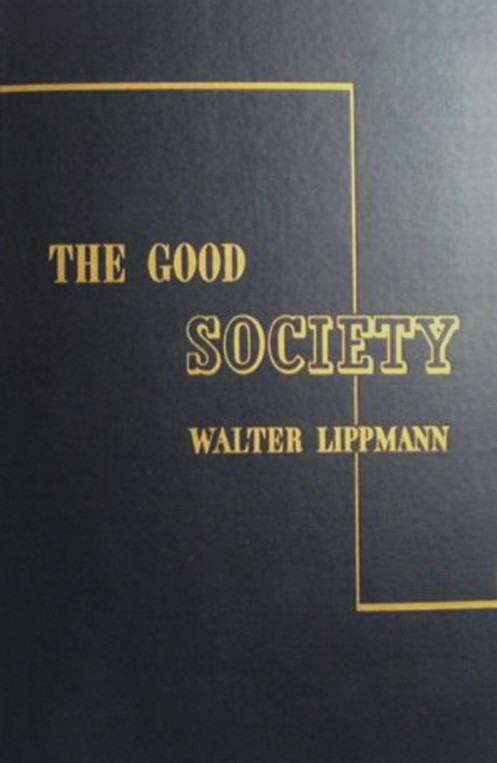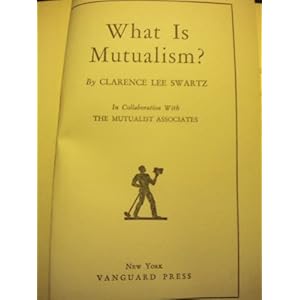Walter Lippmann: The Good Society (1937)
Filed under book | Tags: · collectivism, economy, law, liberalism, liberty, politics, society, totalitarianism

The Good Society is a critical text in the history of liberalism. Initially a series of articles published in a variety of Lippmann’s favorite magazines, as the whole evolved, it became a frontal assault against totalitarian tendencies within American society. Lippmann took to task those who sought to improve the lot of mankind by undoing the work of their predecessors and by undermining movements in which men struggle to be free. This book is a strong indictment of programs of reform that are at odds with the liberal tradition, and it is critical of those who ask people to choose between security and liberty. The Good Society falls naturally into two segments. In the first, Lippmann shows the errors and common fallacies of faith in government as the solution to all problems. He says, “from left to right, from communist to conservative. They all believe the same fundamental doctrine. All the philosophies go into battle singing the same tune with slightly different words.” In the second part of the book, Lippmann offers reasons why liberalism lost sight of its purpose and suggests the first principles on which it can flourish again. Lippmann argues that liberalism’s revival is inevitable because no other system of government can work, given the kind of economic world mankind seeks. He did not write The Good Society to please adherents of any political ideology. Lippmann challenges all philosophies of government, and yet manages to present a positive program. Bewildered liberals and conservatives alike will find this work a successful effort to synthesize a theory of liberalism with the practice of a strong democracy.
Publisher Little, Brown and Company
433 pages
Clarence Lee Swartz: What is Mutualism? (1927)
Filed under book | Tags: · economy, libertarianism, liberty, money, mutualism, politics, property rights

A classic text on Mutualism.
“MUTUALISM – A Social System Based on Equal Freedom, Reciprocity, and the Sovereignty of the Individual Over Himself, His Affairs, and His Products; Realized Through Individual Initiative, Free Contract, Cooperation, Competition, and Voluntary Association for Defense Against the Invasive and for the Protection of Life, Liberty and Property of the Non-invasive.”
Written in collaboration with The Mutualist Associates
Publisher: Vanguard Press, New York, April 1927
Outlines of Social Philosophies series
238 pages
View online (HTML transcription)
PDF (PDF’d HTML transcription)
View online (book scan)
Kembrew McLeod: Freedom of Expression®: Resistance and Repression in the Age of Intellectual Property (2007)
Filed under book | Tags: · activism, commons, copyright, intellectual property, liberty

Freedom of Expression® covers the ways in which intellectual property laws have been used to privatize all forms of expression—from guitar riffs and Donald Trump’s “you’re fired” gesture to human genes and public space—and in the process stifle creative expression. Kembrew McLeod challenges the blind embrace of privatization as it clashes against our right to free speech and shared resources.
This book’s documentary companion will be available through Media Education Foundation.
Table of Contents
Foreword: An Ideal Lawyer-Citizen (by Lawrence Lessig)
Introduction
1. This Gene Is Your Gene: Fencing Off the Folk and Genetic Commons
2. Copyright Criminals: This Is a Sampling Sport
3. Illegal Art: When Art Gets in Trouble with the Law, Art Gives the Law Trouble Back
4. Culture, Inc.: Our Hyper-Referential, Branded Culture
5. Our Privatized World: Selling Off the Public Square, Culture, Education, Our Democracy, and Everything Else
6. The Digital Future: And the Analog Past
Afterword: Freedom of Expression®
Epilogue: The Day I Killed Freedom of Expression
Publisher University of Minnesota Press, 2007
ISBN 0816650314, 9780816650316
Length 379 pages
The PDF Version of the book is licensed under a Creative Commons License.
More info (author)
More info (wikipedia)
More info (publisher)
More info (google books)
PDF (PDF)
PDF (PDF of QXD file)

